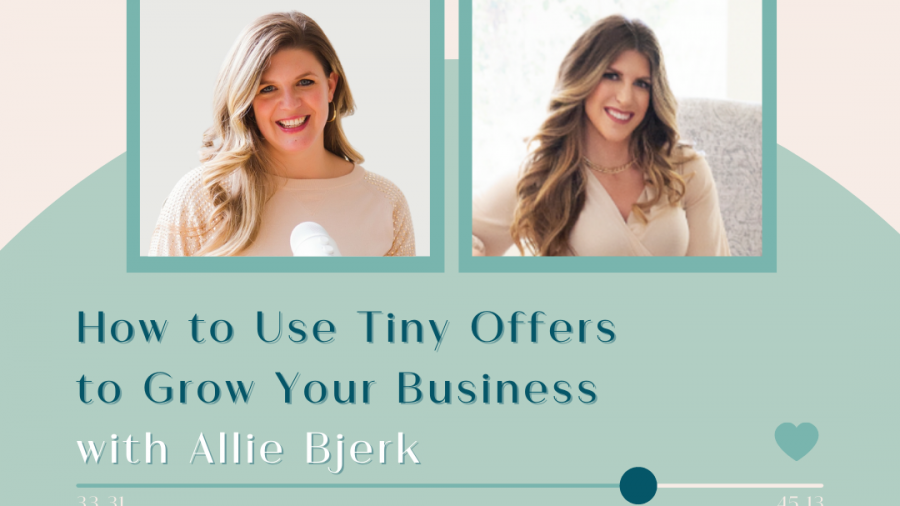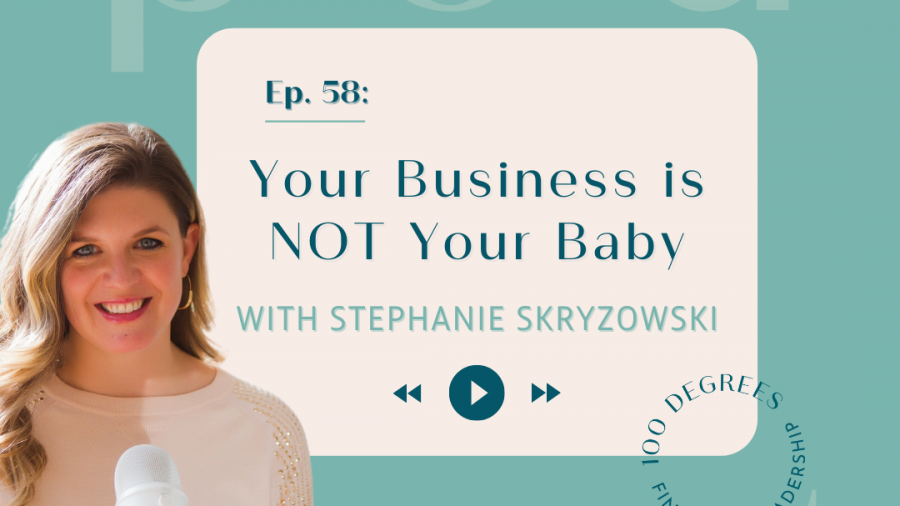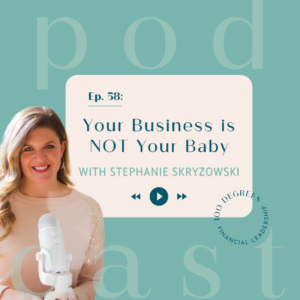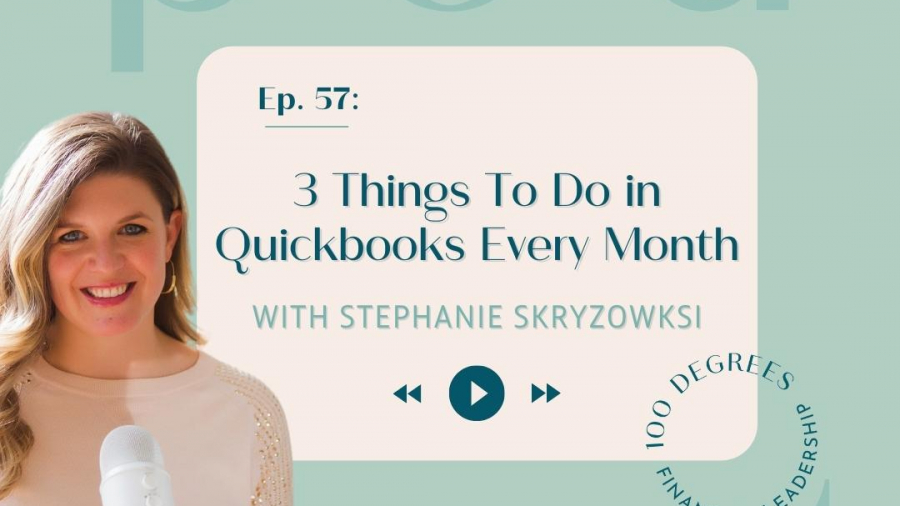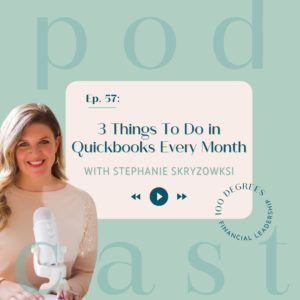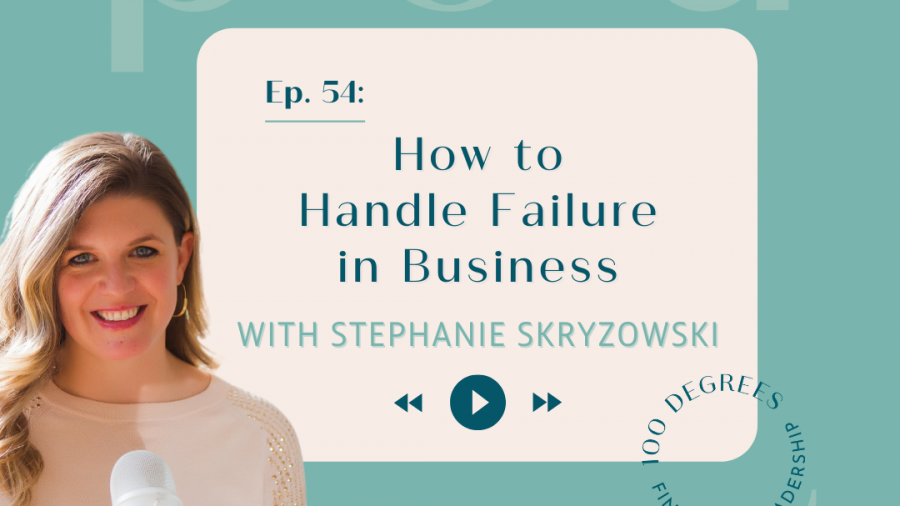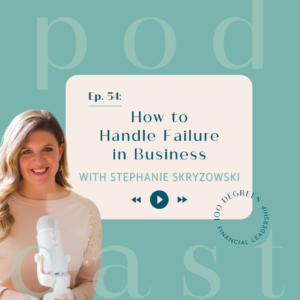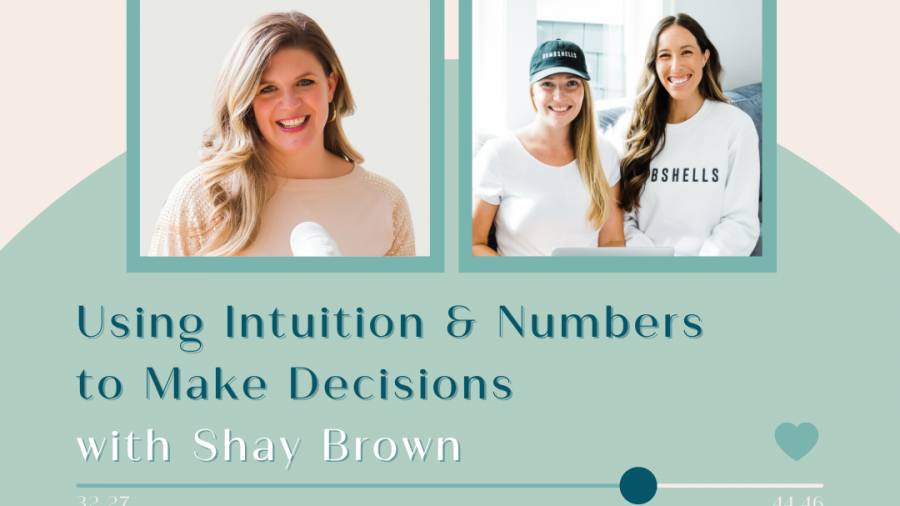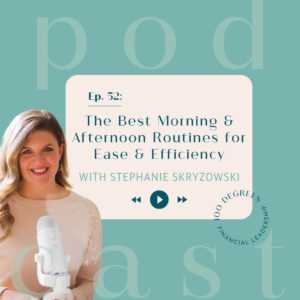
Oh, my gosh… have I got an amazing episode to share with you this week!
Sharing her insight on the show is none other than visibility strategist, coach, and consultant – Allie Bjerk.
Allie spent years working for corporate web development and internet marketing agencies before launching her business, managing SEO and social media departments, teaching marketing, and training new agency employees.
But everything changed when she became a mom… after the birth of her first baby and a debilitating battle with postpartum anxiety – Allie decided to transform her life and never look back. Now, she lives an adventure and travel-filled life at peace in Northern Minnesota with her husband and three young children.
Allie is passionate about helping women business owners end the hustle, simplify their visibility strategies, and make more money with less stress using what she calls “Tiny Offers.” She’s also a funnel expert and has used her marketing agency experience to help entrepreneurs achieve their goals through programs focused on tiny offers strategies. In other words, she knows her stuff when it comes to growing a business!
So, whether you’re just starting out in business or you’ve been in business for a while and you’re looking to take things to the next level, this episode is for you, my friend.
“Everybody’s time is for sale for the right amount. I guess, for most people, you should be able to get something from them, if you’re willing to pay for it.” – Allie Bjerk
What you’ll learn in this episode:
- How Allie Bjerk’s entrepreneurial journey started
- Why having a healthy mindset is key to gracefully handling your business success
- What does personal growth have to do with business growth
- The advantage of taking part of a group program or mastermind
- Why a well-rounded content marketing strategy is vital to your business’ visibility
- Allie’s insight on how she balances her role as a mom and an entrepreneur
More resources to help you uplevel your mindset and business:
- 7 Best Business Tools to Boost Efficiency & Profitability
- Monthly Finance Habits for Better Numbers in 2022
- Growing Your Wealth Mindset
- 3 Biggest, Hardest Lessons of Building a Million Dollar Business
- How to Create Intention and Flow in Your Business and At Home
- How We’ve Grown 400% in 4 Years
WANT MORE OF THE 100 DEGREES OF ENTREPRENEURSHIP PODCAST?
Follow me on Instagram: @stephanie.skry (Tag me in your screenshots of the podcast and I’ll be sure to share!)
Are you feeling stuck with what to do next to manage the money in your business?
Maybe you’ve logged into QuickBooks once or twice, but got instantly overwhelmed. Or you started to set revenue goals, but don’t know where to go from here. Maybe you simply know that managing your numbers is the right thing to do, but you don’t know what that actually means. Don’t worry, friend! I’ve got just the thing.
Managing Your Business Finances Like a CFO is my brand new 10 step checklist that will help you manage your business like a CFO without making it your full time job.
READY TO STEP OUTSIDE YOUR COMFORT ZONE AND MAKE A BIGGER IMPACT?
Click here to subscribe to the show so you don’t miss a thing!

